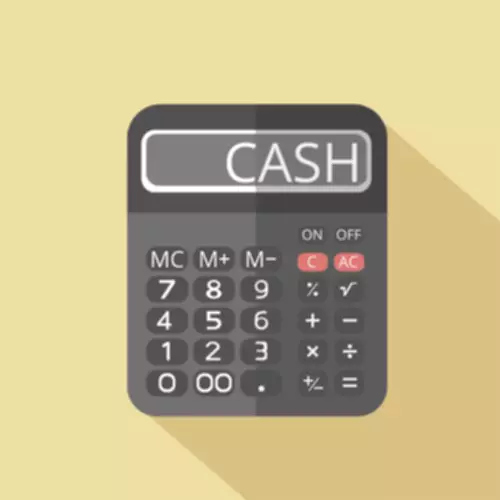Bookkeeping
Accountant vs Bookkeeper: What’s the Difference?
Content
- What Credentials Does an Accountant Have?
- Skills in Preparing Financial Statements
- Join over 140,000 fellow entrepreneurs who receive expert advice for their small business finances
- What Do You Need to Set Up Bookkeeping for Your Business?
- Bookkeeping – What is bookkeeping?
- Create an account to get more

Coaching If you are brand new to Quickbooks or simply need a refresher, our experts will coach you through the many facets of both the desktop or online versions. Setting up account receivables, learning how to process payments, entering or paying invoices, or any other task Quickbooks offers, let us coach you.
Simply put, bookkeeping is more transactional and administrative, concerned with recording financial transactions. Accounting is more subjective, giving you insights into your business’s financial health based on bookkeeping information.
What Credentials Does an Accountant Have?
Careless mistakes that seem inconsequential at the time can lead to bigger, costlier, more time-consuming problems down the road. Rarely does a bookkeeper work on one big project for an eight-hour shift; instead, a typical workday involves juggling five or six smaller jobs.
- These accounting detectives’ work often centers around legal issues.
- Furthermore, it provides information that can be used to make general strategic decisions.
- While bookkeeping is a part of accounting, the latter is a more extensive concept.
- As we mentioned earlier, every business needs to be on the ball when it comes to their bookkeeping, no matter how big or small they are.
- Some small business owners decide to do their own bookkeeping, while others hire a bookkeeper to help with bookkeeping tasks, from bank reconciliations to recording journal entries.
- The accounting process uses the books kept by the bookkeeper to prepare the end of the year accounting statements and accounts.
In the normal course of business, a document is produced each time a transaction occurs. Deposit slips are produced when lodgements are made to a bank account. Checks (spelled “cheques” in the UK and several other countries) are written to pay money out of the account. Bookkeeping first involves recording the details of all of these source documents into multi-column bookkeeping definition journals . For example, all credit sales are recorded in the sales journal; all cash payments are recorded in the cash payments journal. In the single entry system, each transaction is recorded only once. Most individuals who balance their check-book each month are using such a system, and most personal-finance software follows this approach.
Skills in Preparing Financial Statements
Sales ledger, which deals mostly with the accounts receivable account. This ledger consists of the records of the financial transactions made by customers to the business. With them, you can keep an eye out fortrendsin your company’s business and be more confident in the amount of taxesyou’ll be expected to pay at the end of the fiscal year. Once you have a detailed recording and a better overview of the company’s accounts, it is much easier toplan and predict the future. When you are confident in your data, you can solve issues quickly and you can grab any opportunities that present themselves, without having to fear miscalculations in the accessible data. Thanks to the overview of profit and loss evolutions in the balance sheet, you will be able to know exactly what to do and how much time you have to do it.
Bookkeeping and accounting services make it easier to plan business strategies and lead the market in terms of competitiveness. A bookkeeper’s work is usually overseen by an accountant or by the business owner whose books they are working on.
Join over 140,000 fellow entrepreneurs who receive expert advice for their small business finances
Accounting is a broader phenomenon; bookkeeping is just a small part of the accounting system. Accounting comprises organizing, recording, classifying, summarizing, and reporting business transactions. In comparison, bookkeeping is limited to recording and organizing financial information.
A Certified Bank Auditor is an accounting specialist responsible for reviewing and evaluating a financial institution’s records to ensure accuracy. An enrolled agent is a tax professional authorized by the United States government. Their job is to advocate and assist taxpayers when they have issues with the Internal Revenue Service. To become one, you have to either have worked at the IRS or pass an EA examination. Bookkeeping is a great starting point if you are interested in the field but not fully committed and want to test the waters. You may also be an ideal bookkeeping candidate if you want a good job with a respectable wage and decent security but may not be looking for a long-term career.
CPAs have passed the Uniform CPA Exam – a challenging exam that tests knowledge of tax laws and standard accounting practices. An accountant can be considered a bookkeeper, but a bookkeeper can’t be an accountant without proper certification. The chart of accounts lists every account the business needs and should have.
- A CPA is an accountant who has met their state’s requirements and passed the Uniform CPA Exam.
- In this post, we’ll cover the differences and similarities between accountants and bookkeepers and their services so you know which to hire.
- Is a method whereby only the financial transactions facilitated through money exchange can appear in the books.
- The amounts in each of the accounts will be reported on the company’s financial statements in detail or in summary form.
- One of the greatest assets of an organization is its financial data.
- At first glance, the two can seem quite similar, but there are a few main differences.
